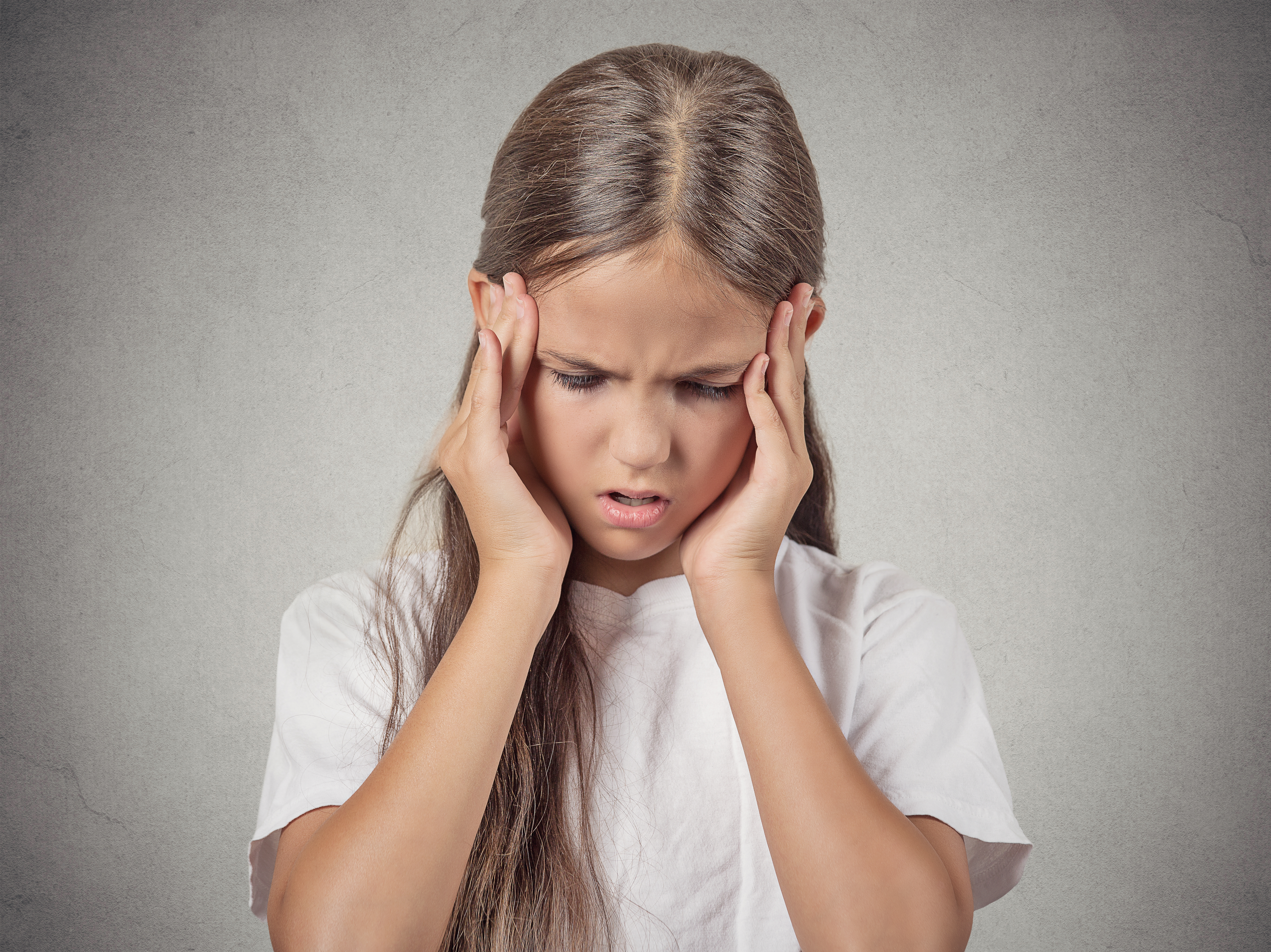Anxiety is one of the most common disorders in the U.S. Anxiety is a normal response to stressful situations so it’s important to know when anxiety is appropriate or excessive. Many reports estimate that one in eight children are affected with anxiety disorders. Anxiety in children can present in many ways. Children may express anxiety through tantrums, feelings of panic, irrational thoughts, aggression, clinginess, and sadness. It can affect school, home, social interactions and overall enjoyment of life and new experiences. Below are 3 tips to help your anxious child.
Parents often ask what can they do to help their children manage anxiety. It’s hard for many parents to address their children’s anxiety as it’s hard to know what the “right” thing is to say. It can be hard and frustrating for parents. Remember to imagine how hard it must be for the little person in front of you. They haven’t yet learned the tools you have to manage stressful events. In these moments, it’s important for parents to remain calm and hopeful for their kids. Don’t yell or scream at your child. Speak in a calm even voice. Convey kindness and love. Remind them that you will help them. Teaming with a therapist, child psychologist or psychiatrist can help guide you with behavioral modification techniques and overall support.
It’s important to remember that your child cannot control their thoughts. They cannot stop themselves from perseverating over school or social interactions. Getting to sleep may be difficult for children struggling with anxiety. Like adults, before bedtime is the time children often process the events of the day and express their worry. They may become very irrational about going to meet new people or trying something new. So how do you help your child during these times? These three tips can help your anxious child.
3 Tips to Help Your Anxious Child
1. Don’t minimize your child’s feelings.
Telling your child not to worry or stop thinking about what’s bothering his/her isn’t going to help. Children do not have control over their thoughts during these times of high anxiety. Your role is to make them feel safe and calm. Let them know that you understand the situation is very difficult and you are there to help them.
2. Help your child to calm his/her brain.
Relaxation techniques are very helpful in easing the frustration and fear that anxiety brings. Teach your child how anxiety relates to the body. By relating the change in one’s body (change in breathing, heart racing, stomach upset) with anxiety it can help children to identify the feeling and what to do next. Depending on the age of the child, writing or journaling can help. Breathing exercises or yoga can help children to self-regulate. Help your children to imagine or visualize a place that brings them peace and to think about that place when they feel out of control. Using relaxation techniques can slow down and calm the brain and bring peace faster to your child so you are able to move on to the next step – strategizing how to navigate the stressful situation.
3. Strategize with your child about how to manage stressful situations.
Teaching your child strategies to manage anxiety will help them cope better with managing stressful situations. Help them to develop a plan to use when they are feeling anxious. For example, if they are anxious about starting a new school, contact the school in advance and schedule a tour of the school prior to the first day. See if you can meet the teacher and, if possible, students at the school. Role play what to do if your child is in a situation where they need to introduce themselves to other students. Give them examples of leading questions to ask the other students to make engaging with other kids less stressful. The anxiety will not all go away but it will begin to give them the tools they need to manage the stressful event without falling apart.
Getting Help
As it is easy for untreated anxiety to lead to depression and future substance use or self-harming behavior, getting help for your child is very important. Therapists can help give children and parents tips for managing anxiety. Children often like having their own therapist to talk to and help give them specific tools to use when managing their feelings related to anxiety or depressive thoughts. It is often easier for kids to take suggestions from their therapist or “expert” than from the parent. Therapists also partner with the parent to develop a plan to best manage the anxiety when it strikes. Even better, therapists can help parents and children identify the triggers and signs before it escalates. The therapist can also guide parents when the anxiety needs more than talk therapy. Medication isn’t always necessary but can be very helpful when indicated.
Aimée Muth, LCSW is a therapist practicing in Old Greenwich. For more information, go to: www.aimeemuthlcsw.com.

